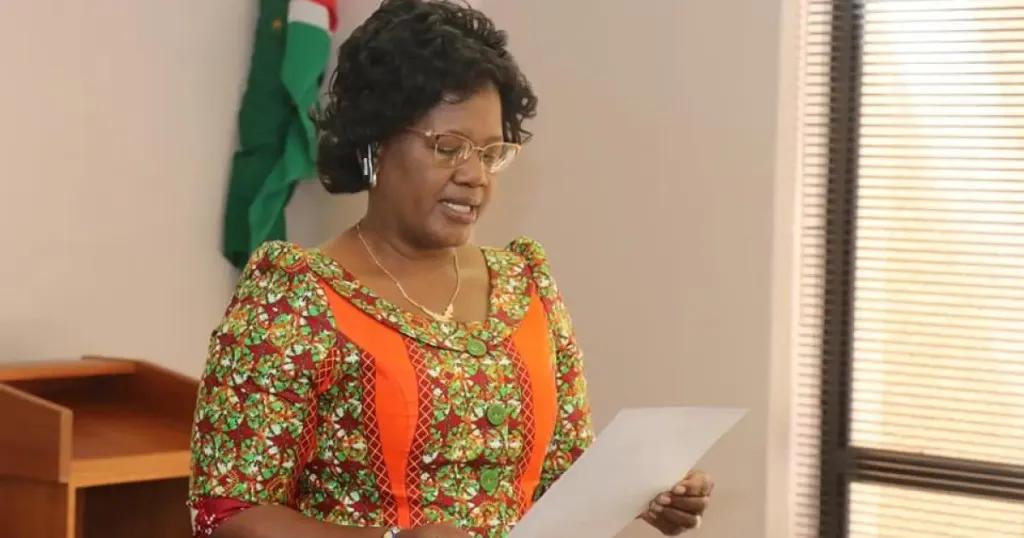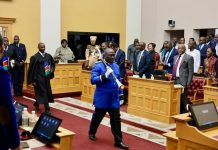Africa-Press – Namibia. THE Deputy Minister of Finance and Public Enterprises (MOFPE), Maureen Hinda, reminded Chief Executive Officers (CEOs) of different public enterprises that they should maintain their mandates, which is to uplift Namibians out of poverty and to stimulate the economy.
Hinda said that this is necessary for PEs to maintain their relevance in the current economy. She said this at a stakeholder engagement held on the Public Enterprises Draft Regulations, which was held under section 38 (1) of the Public Enterprises Governance Act 1 of 2019.
Hinda explained that the workshop sought technical inputs on draft public enterprise regulations from all key stakeholders and consensus on the draft regulations.
The deputy finance minister explained that in the past public funds were used to redress and reform the economy. She added that from history, at the turn of the 20th century, many Afrikaans people were very poor and illiterate and unschooled. The government of the day, at the time the South African regime, intervened to redress the economy.
As such, she said, the past regime formed institutions that could venture into areas that was not attractive for the private sector. The deputy minister highlighted that some entities such as Santam, now Sanlam, SWA railings, the South African Land Bank, now Agribank and SWAVET, now NamPower, were established to redress the economy.
“The purpose of these institutions was to stimulate economy and assist government in lifting people out of poverty. Many argue that the private sector is ready to step up. Why are we, in NamPower, in telecommunications? The question is, who’s the private sector? “ Hinda asked.
She added that the majority of Namibians are unable to access finances to venture into the private sector and if PEs still has relevance in the economy, they have to execute their mandate, which is to stimulate the economy and not drain the state reserves, but to supplement treasury.
“It is also not there to enrich private individuals but to lift up ordinary Namibians from poverty,” Hinda emphasised.
She added that the recent integration of the Ministry of Public Enterprise into the Finance Ministry has enhanced the shareholders functions as government can now better manage fiscal risks and contingency liabilities inherent to PEs. This means that assets and liabilities management of the state will be under one roof.
“The MOFPE, has recently read the national budget, which is still under discussion in parliament. It was evident that the focus on PE sustainability and growth is of importance to assist government financially. Just please don’t ask me for more money,” the deputy minister said.
The minister further asked that board recruitment processes are concluded to avoid leadership and governance vacuums within PEs.
“Furthermore, we will engage with PE boards and executives in developing bankable, integrated, strategic business plans,” Hinda said.
She added that another milestone target for this financial year will be the development of an integrated Performance Management Framework and electronic performance as well as evaluation systems for PEs.
“This digitalization interventions will allow the ministry to retrieve audited financial statements, governance agreements, and perform real time data analysis on PE performance. This will enable the ministry to follow up on non-compliant PEs and enforce penalties as prescribed by the law. Our biggest challenge for Namibia seems to be governance, or rather good governance, clean and timely annual audits and compliance thereto. Some PEs are under scrutiny on the way they handle public resources, hence we need to up our game, sharpen our tool kits, in order to adopt to the ever-changing world. We should not compromise on service delivery of our people,” Hinda said.
For More News And Analysis About Namibia Follow Africa-Press






